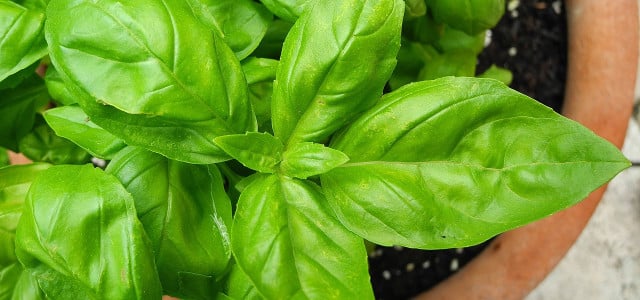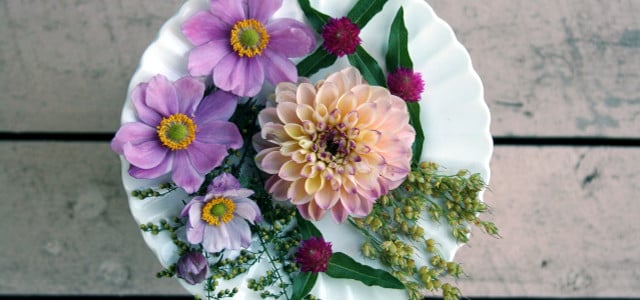Growing your own fresh herbs couldn’t be easier: We’ll show you how to grow basil, chives, parsley etc. and how to harvest your herbs correctly. With the right plant care, basil and other store-bought herbs can stay fresh for months.
Learning how to grow basil and other herbs at home paves the way for creative culinary exploration: Tomato and mozzarella salad with basil leaves, hummus topped with fresh parsley, or potatoes with rosemary — fresh herbs simply taste better than dried spices.
Growing basil yourself or even creating your own kitchen herb garden can also save you a few trips to the store. However, pre-potted basil plants can prove very practical and are a good place to start. Potted herbs like basil can actually last a very long time — if you know a thing or two about basil plant care.
Here are some simple yet effective tips on how to care for (store-bought and) home-grown plants such as basil, parsley, and chives so they remain fresh and last longer.
Best Basil Fertilizer and Growing Tips
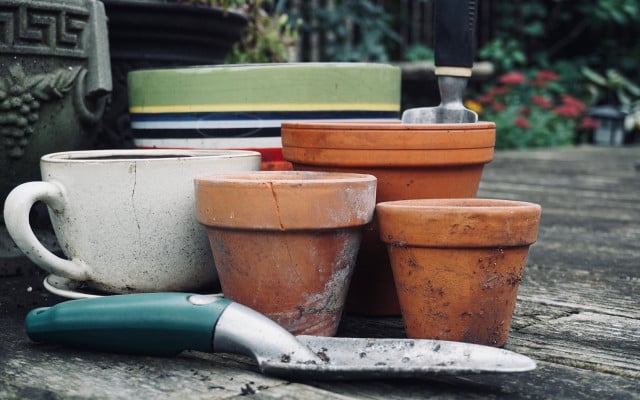
If you decide on potted herbs such as basil, rosemary or sage, make sure to buy organic. This is the best way to ensure the plants aren’t laden with pesticides or other harmful chemicals.
Growing basil plants you bought at the store or caring for homegrown herbs is easy — here’s how to care for them and keep them fresh for longer:
- Use natural fertilizers: You can help your chives, parsley, or basil grow by adding compost soil or natural fertilizers every now and then. They contain additional nutrients, which are essential for all kinds of kitchen herbs. As a simple homemade fertilizer, you can reuse coffee grounds, stale beer, tea (green or black tea) or mineral water. Using fertilizers like coffee grounds for your basil also helps put food waste back to use and saves you money. Ensure not to over-compost your plants and regularly remove old coffee grounds and tea leaves.
- Divide your basil plants: Use three to four pots. Pre-potted plants from the supermarket are often densely packed into one single pot. This leaves them with little room to grow and a significantly reduced nutrient base for each plant. Splitting the individual plants up among several pots counteracts this.
- Drain properly: When repotting, always use flowerpots with a hole in the bottom for drainage.
- Use loose soil: Any loose soil for the new pots works just fine here — no need for any special (and more expensive) soil types for herbs or gardening.
Also interesting: Homemade Weed Killer from Organic Ingredients: The Ultimate Guide
How to Harvest Basil
Now that you know how to grow basil, parsley and sage, you just need to keep them fresh. Don’t worry: Succeeding in growing and harvesting basil for months takes no magic – but the right approach to plant care.
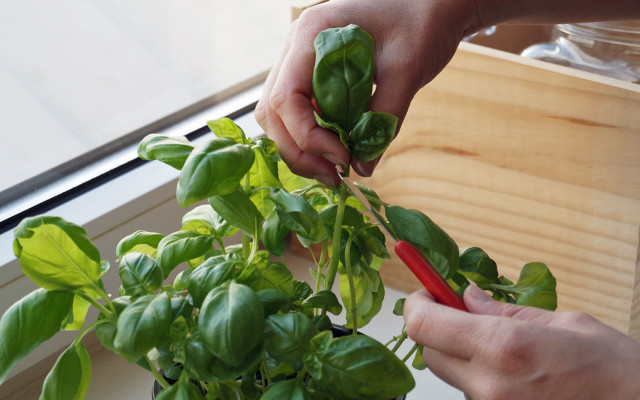


To harvest basil and other herbs, try to avoid picking individual leaves. Use scissors or a knife to cut the buds off individually. This allows new branchlets to grow and prevents the basil and other plants from blooming. This is very important because the flowers will hinder the plant’s growth – even though they may look pretty.
When the plants bloom, they invest all their energy into flower and seed formation and the herbs’ aroma fades away. To ensure steady plant growth, be sure to regularly remove old and withered leaves and stems.
More Tips for Healthy Basil Growth
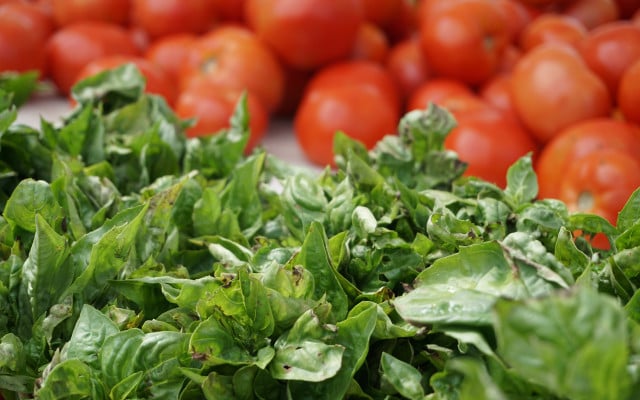


How to cultivate basil:
- Light: Your plants should be getting the right amount of light. But if you can, avoid direct sunlight, which can burn the sensitive leaves.
- Water: Even more importantly: Water your plants correctly. This way, they’ll stay fresh even longer. A rule of thumb: The right amount of water equals about ten percent of the pot volume.
- Tip: Parsley can take a bit more water and basil grows best when you keep the soil consistently damp. Too much water can lead to mold forming and too little water will dry out the plants.
How to Prepare Basil and Other Herbs for Winter
To prepare your plants for the winter, you should cut them back completely. You can then either use up the herbs immediately, for example, in a homemade pesto, you can dry them or freeze them.
Tip: You can freeze fresh herbs like basil in an ice cube tray. Simply chop finely and add a few drops of olive oil. That way, you’ll have handy portions ready to use. Here are some more tips for freezing foods without plastic.
Growing basil and other annual herbs, such as dill, throughout the winter, can prove rather tricky. Better options are perennials such as rosemary and sage.
** Links to retailers marked with ** or underlined orange are partially partner links: If you buy here, you actively support Utopia.org, because we will receive a small part of the sales proceeds. More info.Do you like this post?






